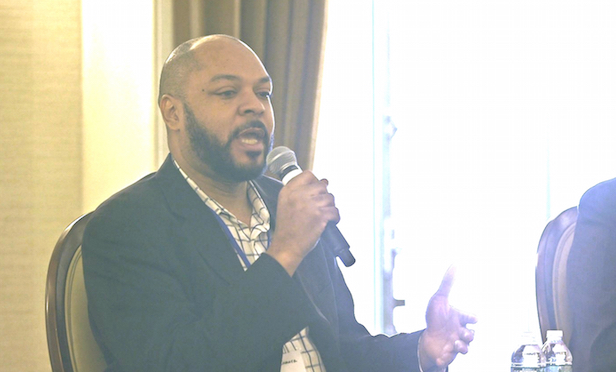
NEW YORK CITY—New York City's Department of Housing Preservation and Development's 2017 Housing and Vacancy Survey concluded with the rental vacancy rate of 3.63%, New York is facing a “housing emergency.” Cities around the country such as Los Angeles are also working to address affordable housing shortages.
Religious institutions are often some cities' largest landowners. They also frequently have a mission to alleviate the affordable housing crises in their communities. Experts recently convened at the New York Athletic Club to brainstorm on how developers, builders and financiers can team up with faith-based organizations to create affordable housing.
NHP Foundation, a leading builder of affordable housing, Goldstein Hall, a law firm which concentrates on community development, Friedman, an accounting firm which serves the affordable housing community, and JPMorgan Chase sponsored the panel discussion. Experts from these organizations were joined by representatives of the New York governor's office, New York City's HPD department, and Temple Builders, a construction company that exclusively builds houses of worship. WNYC's Charlie Herman moderated the discussion.
“The number one word that comes to mind is respect,” said Richard Andrew Smith, CEO of Temple Builders. He said the number one challenge was repeatedly many developers convey an attitude of, “Give me your land. What do you want? Shut up.”
He said the second challenge was explaining to faith-based organizations to get proper professional guidance for their projects. This includes qualified, professional legal and accounting assistance and an independent appraisal of their land.
There is a lot of money to be made in the affordable housing market. Karim Camara, the executive director of the New York Governor's Office of Faith-Based Community Development Services, said the state has committed $20 billion to affordable housing and homelessness.
But it isn't easy money. It takes a tremendous amount of planning and knowledge about state procedures, state financing, regulations and affordability requirements. Camara advises landowners to work with someone who has experience in affordable housing “who will help you get through the process and will not take advantage of you.”
Partnerships can be worked out with condo splits, ground leases or other arrangements, so the church, synagogue, temple or mosque does not forever lose the ownership of its land. “This is really key,” said Smith. “Too many times, a developer flashes a lot of money, then ultimately they [the religious organization] are the tenant.”
Some churches have been an integral part of the community since the Civil War and provide stability in staying a part of the neighborhood. These organization can also help modify the forces of gentrification.
David Walsh, SVP of Community Development Banking at JPMorgan Chase, said he enjoys financing affordable housing of faith-based institutions because the organizations are deeply rooted in the community and truly understand what is needed. That could be housing for seniors or other folks whom they are committed to serving.
In assessing projects to fund, Walsh evaluates the capacity of the organization to develop and to manage the property. Chase looks at whether the players are experienced in affordable housing. Who are the contractors, attorneys and consultants? The panelists agreed that developers who had prior experience in this area would be preferable because the strongest indication for success in the future is a track record in the past.
Sometimes faith-based organizations want to develop market rate rentals. Instead of building affordable housing for 30 or so families, they may prefer to use rental proceeds to serve the community in other ways.
Mike Greenwald, a CPA at Friedman, said he has advised religious organizations on whether their action will create business taxable income. Brian Hsu, a partner at Goldstein Hall, reviewed how the federal tax reform could affect religious institutions and how this might affect their partnerships with for-profit developers.
Nonetheless, Hsu emphasized, “Faith-based organizations can advance their charitable and religious mission while engaging with a for-profit developer that is generally profit driven, provided that both parties listen to the needs of each other and act toward that common goal.”
Want to continue reading?
Become a Free ALM Digital Reader.
Once you are an ALM Digital Member, you’ll receive:
- Breaking commercial real estate news and analysis, on-site and via our newsletters and custom alerts
- Educational webcasts, white papers, and ebooks from industry thought leaders
- Critical coverage of the property casualty insurance and financial advisory markets on our other ALM sites, PropertyCasualty360 and ThinkAdvisor
Already have an account? Sign In Now
*May exclude premium content© 2025 ALM Global, LLC, All Rights Reserved. Request academic re-use from www.copyright.com. All other uses, submit a request to [email protected]. For more information visit Asset & Logo Licensing.








